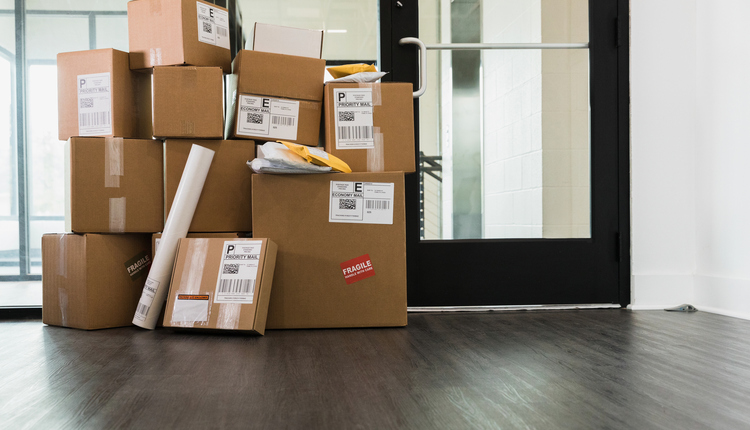After a recession-caused freight price war in the past few years, less-than-truckload (LTL) freight demand and prices are rising again as the economy recovers. With a shortage of trucks, drivers, and even the terminals needed to consolidate LTL shipments due to cuts during the recession, industry experts are predicting double-digit price hikes until capacity meets demand. For manufacturers dependent on inbound, outbound, or just-in-time shipment of parts or finished goods, rising LTL rates can be particularly worrisome.
Carriers that absorbed price cuts and deferred maintenance to contain costs are now raising prices to regain margins lost during the recession. Fuel costs that have risen about 20-30% recently, due to tighter supply, Middle East instability, and other factors, are also driving up LTL freight costs.
“When industry freight costs rise, it’s more important than ever to find the best price,” states Kenny Mealer, Shipping Manager of CrossRidge Precision Inc., an Oak Ridge, Tenn.-based company offering precision machining and assembly of aerospace, automotive, nuclear, heavy truck and industrial products and components.
While most manufacturers can expect rising shipping rates as the economy improves and carriers regain lost ground, the most proactive are seeking to partner with a professional, third party logistics provider (3PL). This can save manufacturers an extra 18 to 25% off already heavily discounted LTL freight costs, if they routinely make multiple shipments to multiple locations and work with numerous freight carriers. For every $100,000 in freight costs, that’s an extra $18,000 to $25,000 in savings.
How can a 3PL lower freight costs beyond a company’s existing discounts? By negotiating additional discounts based on the 3PL’s relationship, reputation, and volume business with established carriers.
“A good 3PL will analyze current rates and freight requirements, then bid out the work to qualified freight companies hungry for the work,” explains Larry May, owner of Freight Management Systems (FMS), a Knoxville, TN-based 3PL routing approximately 20,000 freight moves each year. “An established 3PL, brokering a large volume of business with major carriers, can negotiate much better discounts than the manufacturer.”
Relationships with the leading U.S. LTL carriers and the largest load matchers in the country allow many 3PLs to consolidate a client’s freight with its own volume discount, put out a “mini-bid” to a few chosen carriers known to be a good fit, or put out a “full bid” for which up to 20 select carriers compete. Proprietary “best carrier pricing” software, which rates shipments from multiple carriers, helps companies like FMS to quickly and efficiently determine the best carrier at the best cost. With the software, customers also have the option of going online to check shipping rates themselves at www.freightrater.net via a protected user name and password.
“Working with a 3PL has consistently given us the best LTL freight price with the reliability we need for just-in-time inventory shipments,” says Mealer.
“I thought I’d done well with the 77 to 80% freight discounts I’d negotiated from our carriers,” states Kenneth Precise, purchasing agent for the Kennedy Company, a manufacturer of PVC sheeting and components. “But [a 3PL] cut our freight cost by another 25% and took care of all the paperwork.”
For any manufacturer making a product or receiving parts, allowing a 3PL to bid out freight and come back with a proposal is as close to a “no brainer” as possible in a competitive market economy. After all, there are no upfront costs or hidden fees paid to the 3PL. The 3PL makes its money based solely on a pre-negotiated percentage of savings delivered to the manufacturer.
“There’s no out-of-pocket cost because we’re only paid a negotiated percentage of the savings delivered,” explains May. “The savings come from a greater discount on LTL freight, eliminating freight bill errors, and reducing in-house payroll.”
“We don’t have enough time to routinely quote many carriers, sort the bids, and follow up with the shipments,” states Mealer. “A 3PL can help do that while minimizing potential freight errors.”
Because mistakes in LTL freight billing are common, especially in product classification, full service 3PLs should conduct freight bill audits. For instance, they should audit the National Motor Freight Classification (NMFC) code on the freight’s bill of lading to ensure it hasn’t been mis-classified at a higher rate.
“Many factors affect how a freight rate is calculated: product classification, density, weight, value, distance moved, and damageability, for example,” says May. “But the higher the NMFC classification, the higher the shipping rate, which is why getting it right is key.”
Working with a good 3PL can also contain the hidden costs of freight such as chasing down quotes, invoices and documentation, which can require a substantial in-house staff if done internally. It can also help to prevent potential production line slows or shut downs when needed parts are unexpectedly held up.
FMS, for instance, offers inbound and outbound shipment analysis, invoicing and reporting with appropriate backup documentation. One client that previously processed about 300 freight invoices a week, estimates that it reduced its required staffing by more than two employees when the 3PL began auditing, paying, documenting and consolidating its freight bills into a single weekly bill.
For manufacturers who have relied on the expertise of 3PLs, however, the benefits of doing so go beyond initial or ongoing savings.
“Customer service is our product,” explains May. “Our customers know that when they have a freight emergency, we will stick with them through the end. We take emails late at night, we trace the freight online, we call dispatchers and terminals to make sure deliveries are on schedule. We even help with dispute resolution, when necessary. Since we try to ‘out service’ everybody else, the savings that manufacturers will realize from the no-risk bid process is just the low-hanging fruit of our relationship with them.”
Del Williams is a technical writer based in Torrance, California.
Freight Management Systems (FMS), a full service 3PL, provides LTL, volume, truckload, intermodal (rail), small package and international freight services as well as expedited, time critical and trade show shipping.
Carriers that absorbed price cuts and deferred maintenance to contain costs are now raising prices to regain margins lost during the recession. Fuel costs that have risen about 20-30% recently, due to tighter supply, Middle East instability, and other factors, are also driving up LTL freight costs.
“When industry freight costs rise, it’s more important than ever to find the best price,” states Kenny Mealer, Shipping Manager of CrossRidge Precision Inc., an Oak Ridge, Tenn.-based company offering precision machining and assembly of aerospace, automotive, nuclear, heavy truck and industrial products and components.
While most manufacturers can expect rising shipping rates as the economy improves and carriers regain lost ground, the most proactive are seeking to partner with a professional, third party logistics provider (3PL). This can save manufacturers an extra 18 to 25% off already heavily discounted LTL freight costs, if they routinely make multiple shipments to multiple locations and work with numerous freight carriers. For every $100,000 in freight costs, that’s an extra $18,000 to $25,000 in savings.
How can a 3PL lower freight costs beyond a company’s existing discounts? By negotiating additional discounts based on the 3PL’s relationship, reputation, and volume business with established carriers.
“A good 3PL will analyze current rates and freight requirements, then bid out the work to qualified freight companies hungry for the work,” explains Larry May, owner of Freight Management Systems (FMS), a Knoxville, TN-based 3PL routing approximately 20,000 freight moves each year. “An established 3PL, brokering a large volume of business with major carriers, can negotiate much better discounts than the manufacturer.”
Relationships with the leading U.S. LTL carriers and the largest load matchers in the country allow many 3PLs to consolidate a client’s freight with its own volume discount, put out a “mini-bid” to a few chosen carriers known to be a good fit, or put out a “full bid” for which up to 20 select carriers compete. Proprietary “best carrier pricing” software, which rates shipments from multiple carriers, helps companies like FMS to quickly and efficiently determine the best carrier at the best cost. With the software, customers also have the option of going online to check shipping rates themselves at www.freightrater.net via a protected user name and password.
“Working with a 3PL has consistently given us the best LTL freight price with the reliability we need for just-in-time inventory shipments,” says Mealer.
“I thought I’d done well with the 77 to 80% freight discounts I’d negotiated from our carriers,” states Kenneth Precise, purchasing agent for the Kennedy Company, a manufacturer of PVC sheeting and components. “But [a 3PL] cut our freight cost by another 25% and took care of all the paperwork.”
For any manufacturer making a product or receiving parts, allowing a 3PL to bid out freight and come back with a proposal is as close to a “no brainer” as possible in a competitive market economy. After all, there are no upfront costs or hidden fees paid to the 3PL. The 3PL makes its money based solely on a pre-negotiated percentage of savings delivered to the manufacturer.
“There’s no out-of-pocket cost because we’re only paid a negotiated percentage of the savings delivered,” explains May. “The savings come from a greater discount on LTL freight, eliminating freight bill errors, and reducing in-house payroll.”
“We don’t have enough time to routinely quote many carriers, sort the bids, and follow up with the shipments,” states Mealer. “A 3PL can help do that while minimizing potential freight errors.”
Because mistakes in LTL freight billing are common, especially in product classification, full service 3PLs should conduct freight bill audits. For instance, they should audit the National Motor Freight Classification (NMFC) code on the freight’s bill of lading to ensure it hasn’t been mis-classified at a higher rate.
“Many factors affect how a freight rate is calculated: product classification, density, weight, value, distance moved, and damageability, for example,” says May. “But the higher the NMFC classification, the higher the shipping rate, which is why getting it right is key.”
Working with a good 3PL can also contain the hidden costs of freight such as chasing down quotes, invoices and documentation, which can require a substantial in-house staff if done internally. It can also help to prevent potential production line slows or shut downs when needed parts are unexpectedly held up.
FMS, for instance, offers inbound and outbound shipment analysis, invoicing and reporting with appropriate backup documentation. One client that previously processed about 300 freight invoices a week, estimates that it reduced its required staffing by more than two employees when the 3PL began auditing, paying, documenting and consolidating its freight bills into a single weekly bill.
For manufacturers who have relied on the expertise of 3PLs, however, the benefits of doing so go beyond initial or ongoing savings.
“Customer service is our product,” explains May. “Our customers know that when they have a freight emergency, we will stick with them through the end. We take emails late at night, we trace the freight online, we call dispatchers and terminals to make sure deliveries are on schedule. We even help with dispute resolution, when necessary. Since we try to ‘out service’ everybody else, the savings that manufacturers will realize from the no-risk bid process is just the low-hanging fruit of our relationship with them.”
Del Williams is a technical writer based in Torrance, California.
Freight Management Systems (FMS), a full service 3PL, provides LTL, volume, truckload, intermodal (rail), small package and international freight services as well as expedited, time critical and trade show shipping.





